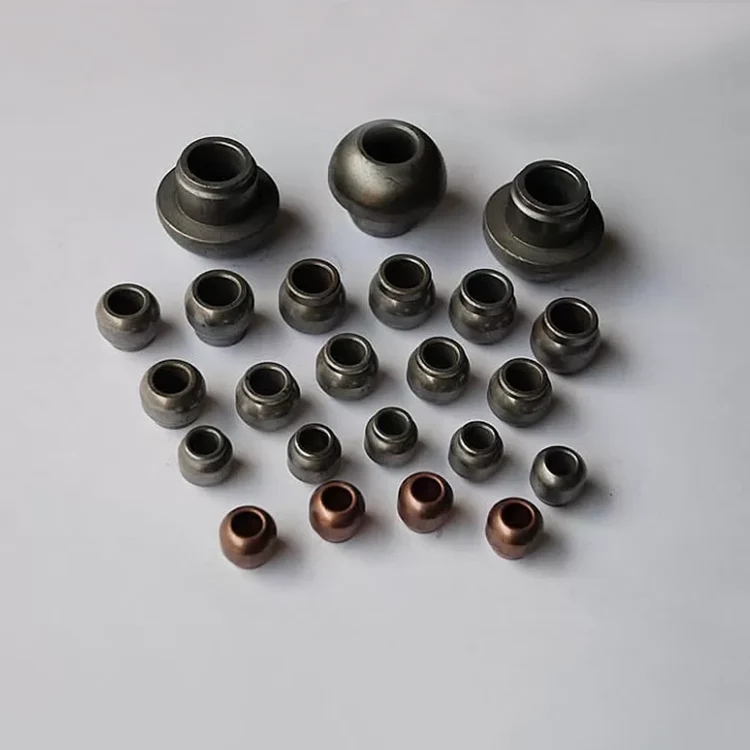Key features and characteristics of sintered metal bearings
2023-10-17
Sintered metal bearings, also known as powdered metal bearings or porous metal bearings, are a type of self-lubricating plain bearing that is manufactured through a sintering process. These bearings are widely used in various industries due to their excellent load-carrying capacity, self-lubricating properties, and resistance to wear and corrosion. Here are some key features and characteristics of sintered metal bearings:
1. Manufacturing Process: Sintered metal bearings are created by compressing and heating a mixture of metal powder, typically composed of bronze, iron, or other metals, along with solid lubricants (e.g., graphite) to form a porous structure. The sintering process involves heating the mixture to a high temperature, causing the metal particles to bond and create a solid yet porous structure.
2. Porosity: The porous structure of sintered metal bearings is one of their defining features. This porosity provides a reservoir for the embedded solid lubricants, allowing for self-lubrication during operation. As the bearing moves, the lubricating particles are released, reducing friction and wear.
3. Self-Lubricating: Sintered metal bearings are inherently self-lubricating due to the presence of solid lubricants within the porous structure. This self-lubrication helps to minimize friction and maintain a low coefficient of friction throughout the bearing's lifespan.
4. High Load Capacity: These bearings are capable of supporting high radial and axial loads, making them suitable for applications with heavy machinery and equipment.
5. Low Friction: The self-lubricating properties of sintered metal bearings result in low friction, which contributes to reduced wear on both the bearing and the mating shaft or housing.
6. Noise Reduction: The low friction and self-lubricating nature of these bearings often lead to quieter operation in machinery and equipment.
7. Wide Temperature Range: Sintered metal bearings can operate effectively over a broad temperature range, making them suitable for applications exposed to extreme temperature variations.
8. Corrosion Resistance: Depending on the materials used, sintered metal bearings can exhibit good corrosion resistance, making them suitable for use in damp or corrosive environments.
9. Customization: These bearings can be customized in terms of composition, size, and shape to meet specific application requirements. Different materials and solid lubricants can be chosen to optimize performance.
10. Applications: Sintered metal bearings find application in a wide range of industries, including automotive, aerospace, industrial machinery, home appliances, agricultural equipment, and more. They are used in various components, such as automotive engine parts, shock absorbers, conveyor systems, and textile machinery.
Sintered metal bearings are chosen based on factors like load requirements, speed, temperature, environmental conditions, and the specific demands of the application. Proper maintenance is essential to ensure the long-term performance of these bearings, which may involve periodic checks and replacement when necessary.



